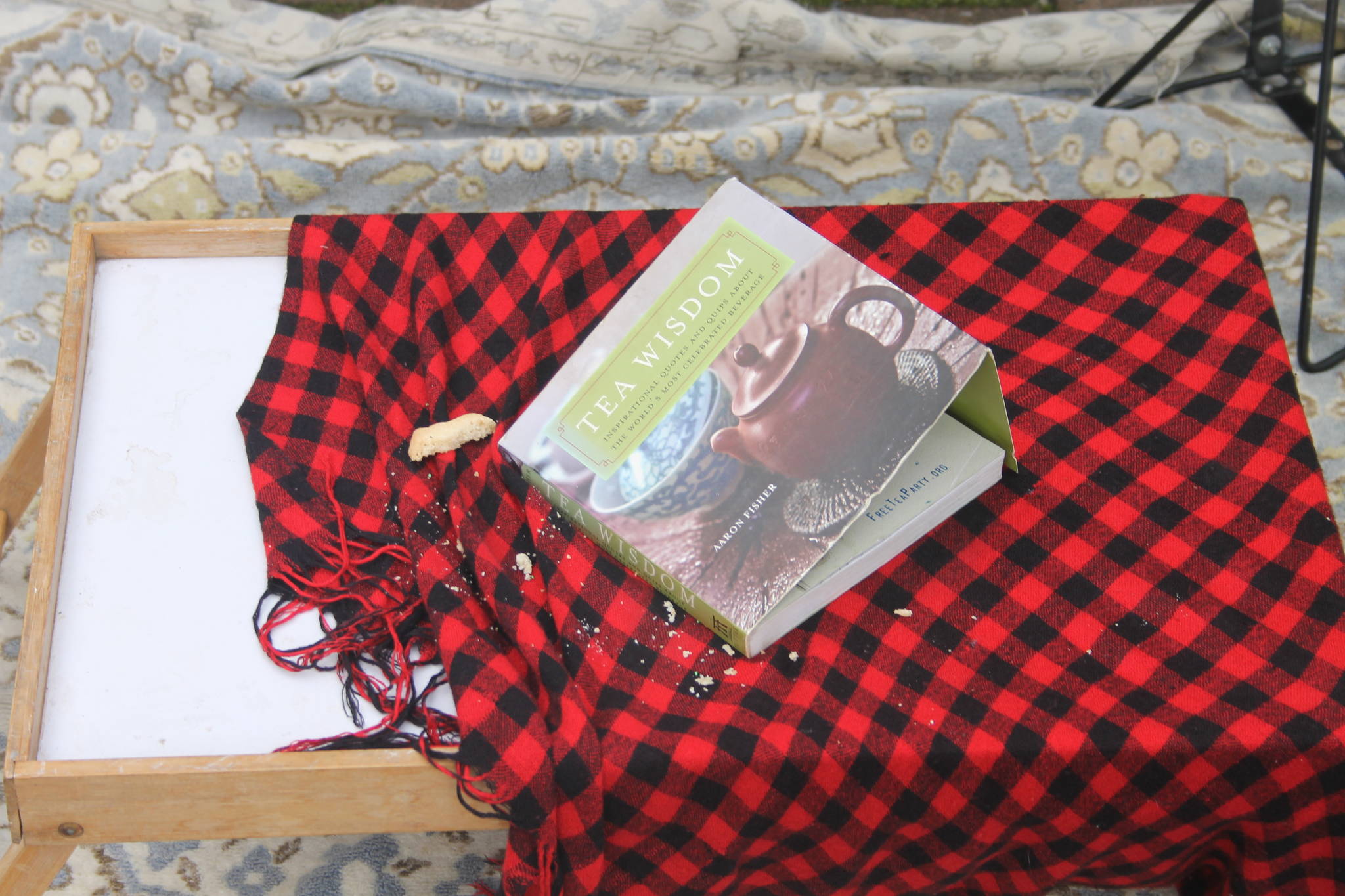There has to be a catch: not even tea is free. Islanders Guisepi Spadafora and his partner Ally Rugge traveled the United States recently, integrating into communities across the country, connecting people over a free cup of tea.
“Relationships are the highest point of value,” said Spadafora.
After years on the road, the couple will remain on the island for the next couple of months. In January, Spadafora is hoping to have a presentation about their North American Free Tea Tour, but in the meantime, islanders may spot the bus parked around Friday Harbor offering hot refreshments.
“Free tea parties are happening all over the world every day,” Spadafora said, noting that throughout Asia, the middle east and Europe, tea is one of the first things offered to a guest, and is often used as a gift or as a symbol to signify the desire to share a bond.
Having graduated in 2001 from Spring Street International School, a private school known for taking students on field trips to places like India, Europe and Guatemala, Spadafora is no stranger to adventure. It was a class trip to India that first introduced him to sharing warm drinks.
“I think the school really fed my traveler’s itch, and the school’s inspiring teachers fed my thirst for knowledge and adventure,” he said, adding that often those field trips were tied to service projects, which taught him the art of charity on the road.
After graduating he found himself working 60 hours a week in Los Angeles, California – a cultural 180 degrees from the small community in which he had grown up. Working nonstop gave him little opportunity to meet people or have any kind of social life. When his hours dropped to 30 a week, Spadafora suddenly had time to reflect on the city in which he now found himself.
“I realized every human interaction centered around a monetary transaction,” he said, from buying food to meeting friends at a bar purchasing drinks.
Spadafora wondered what would happen if money was taken out of the equation. He began cooking extra food for dinner and offering it to anyone around. Before long, he was holding dinner parties and discovered if money was taken out of the equation, there was a completely different interaction between human beings.
The notion of a free tea tour formed slowly in his mind. In 2011, he bought a small white school bus. The plan, according to Spadafora, was to take one year to remodel the bus, and two years to travel the nation.
“I did consider going to Mexico and Canada, but trying to cross the border with lots of green leafy things did not seem like a good idea,” he laughed.
His favorite locations were places like big cities where no one was accustomed to anything free and seeing their brain adjust to this new phenomenon. It was just that mentality he hoped to shift, and watching it happen, seeing it on people’s faces was inspirational.
One of the couple’s favorite reactions was from those who had a rough day, year or life, and needed free tea though they may not have realized they did.
“I loved engaging with people like that, who just needed, you know, to be treated like a human being,” Spadafora said.
The South also touched his heart.
“Southern hospitality is truly amazing,” he said, continuing to say that in Georgia, after being inspired by the free tea bus, people were inspired to create a share site, where people put things for others to take. The group even has a Facebook page to post what has been recently left.
Rugge said some of her favorite places were off the beaten path.
“We would find natural springs for water,” she said, continuing to explain that those springs were usually incredibly beautiful wild areas and frequently served as a gathering place for people.
During the next couple of months, Rugge and Spadafora will reflect on the lessons they learned on the road, and what comes next. The biggest takeaway for Rugge, she said, is that across the country people are divided and have tuned out those that think differently.
Spadafora added that human beings probably have 97 percent commonality; concerns about basic survival, food, shelter and health, but the 3 percent that is different is widely hyped, creating distrust and even hate.
“Empathy is humans saving grace,” Rugge said, “If we listen and hear each other over a cup of tea, we may be able to cross those lines and come together.”




